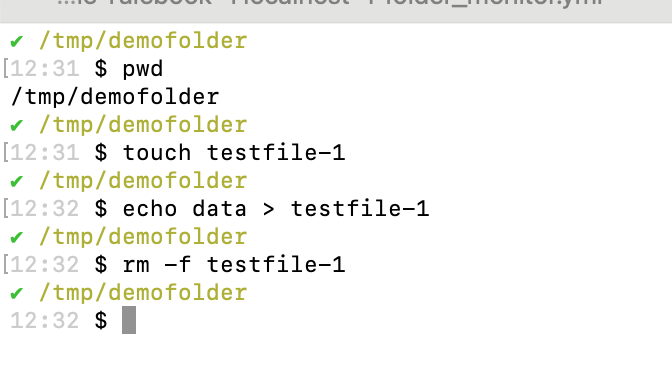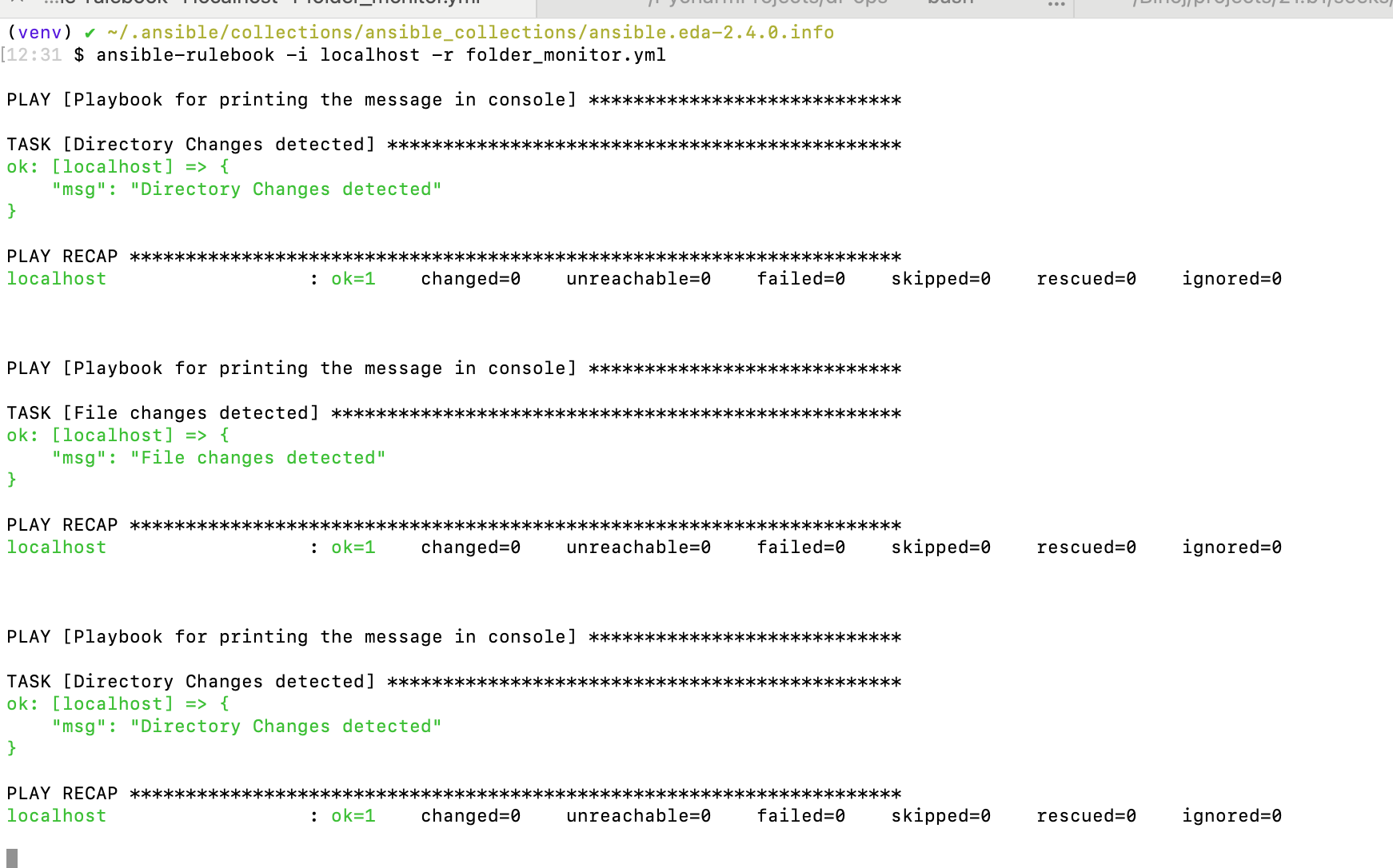How to Monitor a Folder Using Event-Driven Ansible
See how to use Event-Driven Ansible to monitor folders and trigger automated workflows based on file system changes — enhancing security, efficiency, and IT agility.
Join the DZone community and get the full member experience.
Join For FreeReal-time data processing, security compliance, and automation are crucial for keeping systems running smoothly and efficiently. Folder monitoring plays a big role in this, allowing systems to detect changes — like new files being added, modified, or deleted — and take action right away.
Event-Driven Ansible provides an automated way to monitor and manage folders, instantly reacting to changes, detecting them quickly, and taking automated actions while integrating smoothly with your existing tools and systems.
In this article, I’ll show you how to use Ansible to monitor a folder and trigger specific actions whenever a file is created, modified, or deleted. In the example below, I’m using the Ansible debug module to print a message to the host, but this setup can easily be integrated with other Ansible modules based on your organization’s needs.
About the Module
The ansible.eda.file_watch module, part of Event-Driven Ansible, is designed to monitor changes in specific files or directories. It can detect events like file creation, modification, or deletion and trigger automated workflows based on set rules. This makes it especially useful for tasks like folder monitoring and ensuring quick, real-time responses to important changes.
Importance of Folder Monitoring
Folder monitoring is an essential part of IT operations, security, and automation, giving teams real-time visibility into any changes happening within their file systems. It plays a critical role in several important areas:
- Real-Time Detection of Changes: Folder monitoring helps organizations detect new files, changes, deletions, or movements in real time, which is crucial for tasks like log management, data processing, and maintaining up-to-date backups.
- Enhanced Security and Compliance: Monitoring folders for unauthorized access or unexpected changes helps detect security breaches or insider threats while ensuring compliance with regulations like GDPR, HIPAA, and PCI-DSS by restricting access to authorized users.
- Automation and Workflow Optimization: Folder monitoring can automatically trigger workflows, such as processing or moving new files, helping streamline operations in industries like finance, healthcare, and media where fast, efficient data handling is crucial.
- System Integrity and Troubleshooting: Monitoring system folders helps administrators quickly spot unexpected changes, making it easier to troubleshoot issues, identify misconfigurations, and detect unauthorized software installations to keep systems secure and running smoothly.
- Efficient Resource Management: In cloud or network environments, folder monitoring helps manage storage by identifying duplicate or unnecessary files, triggering archiving, and alerting admins when storage limits are reached.
Demo
Here’s the folder_monitor.yml file, which continuously monitors the /tmp/demofolder directory for any changes. If it detects a DirModifiedEvent, it will automatically trigger the dir-event.yml playbook. Similarly, if a FileModifiedEvent is detected, it will trigger the file-event.yml playbook.
---
- name: Directory Monitoring
hosts: localhost
sources:
- name: file_watch
ansible.eda.file_watch:
path: "/tmp/demofolder"
recursive: true
rules:
- name: DirModifiedEvent
condition: event.type == "DirModifiedEvent"
action:
run_playbook:
name: dir-event.yml
post_events: true
- name: FileModifiedEvent
condition: event.type == "FileModifiedEvent"
action:
run_playbook:
name: file-event.yml
post_events: truedir-event.yml
---
- name: Playbook for printing the message in console
hosts: localhost
connection: local
gather_facts: false
tasks:
- name: Directory Changes detected
debug:
msg: "Directory Changes detected"file-event.yml
---
- name: Playbook for printing the message in console
hosts: localhost
connection: local
gather_facts: false
tasks:
- name: File changes detected
debug:
msg: "File changes detected"Here’s a screenshot of the different commands I used for the demo. First, I created a file using the touch command. Then, I modified the file by adding the current date to it, and finally, I deleted the file.

Here’s a screenshot of the directory monitoring command: ansible-rulebook -i localhost -r folder_monitor.yml. The script detected the DirModifiedEvent event when I ran touch testfile-1 and triggered the dir-event.yml playbook. When I modified the file, the script picked up the FileModifiedEvent and triggered file-event.yml. Finally, when I deleted the file, it detected the DirModifiedEvent and triggered dir-event.yml again.

Conclusion
Using Event-Driven Ansible for folder monitoring is a powerful way to automate responses to file system changes, boosting efficiency, security, and compliance in IT environments. With Ansible’s flexible rulebooks and playbooks, organizations can create reliable workflows that react to real-time events, cutting down on manual work and improving overall agility. However, it’s important to follow security best practices to minimize risks that come with automated file monitoring. As event-driven architectures continue to develop, tools like Event-Driven Ansible will play a key role in shaping the future of IT automation.
Note: The views expressed on this blog are my own and do not necessarily reflect the views of my employer.
Opinions expressed by DZone contributors are their own.

Comments